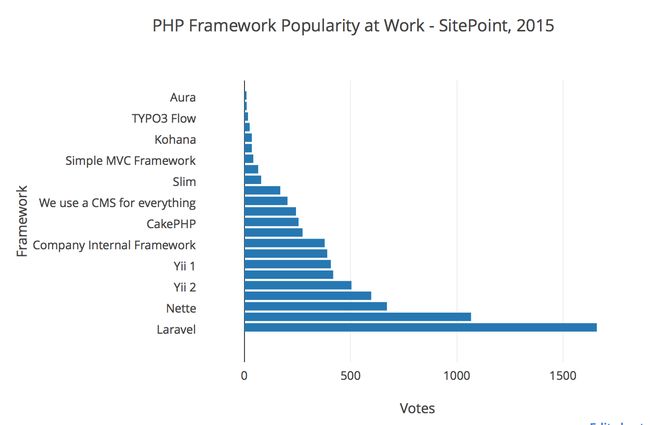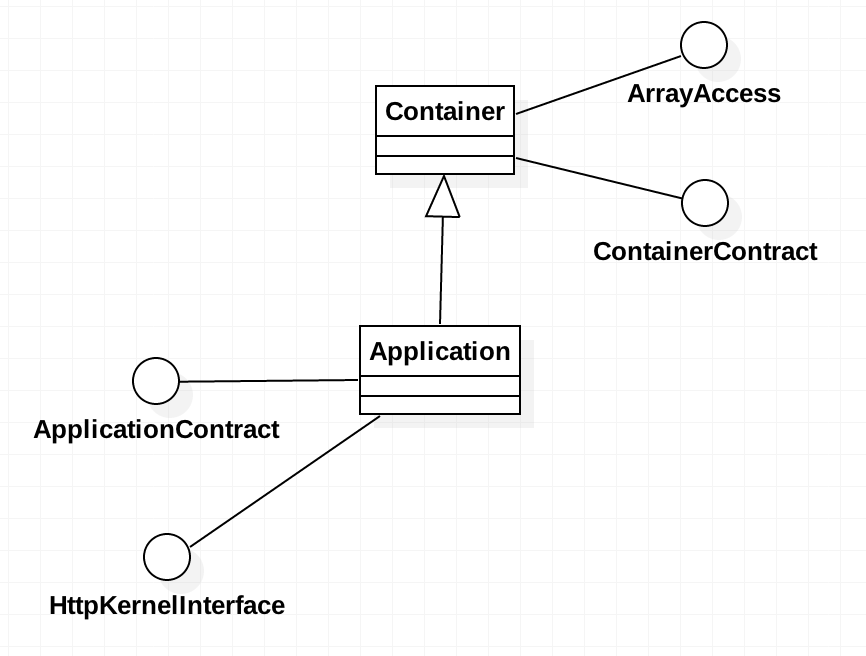- PHP环境搭建详细教程
好看资源平台
前端php
PHP是一个流行的服务器端脚本语言,广泛用于Web开发。为了使PHP能够在本地或服务器上运行,我们需要搭建一个合适的PHP环境。本教程将结合最新资料,介绍在不同操作系统上搭建PHP开发环境的多种方法,包括Windows、macOS和Linux系统的安装步骤,以及本地和Docker环境的配置。1.PHP环境搭建概述PHP环境的搭建主要分为以下几类:集成开发环境:例如XAMPP、WAMP、MAMP,这
- 如何用matlab灵活控制feko的求解
NingrLi
matlab开发语言
https://bbs.rfeda.cn/read.php?tid=3778Feko中的模型和求解设置等都可以通过editfeko进行设置,其文件存储为.pre文件,该文件可以用文本打开,因此,我们可以通过VB、VC、matlab等工具对.pre文件进行读写操作,以达到更灵活的使用feko。同样,对于.out文件,我们也可以进行读操作。熟练使用对.pre文件和.out文件的操作后,我们可以方便的计
- 进销存小程序源码 PHP网络版ERP进销存管理系统 全开源可二开
摸鱼小号
php
可直接源码搭建部署发布后使用:一、功能模块介绍该系统模板主要有进,销,存三个主要模板功能组成,下面将介绍各模块所对应的功能;进:需要将产品采购入库,自动生成采购明细台账同时关联财务生成付款账单;销:是指对客户的销售订单记录,汇总生成产品销售明细及回款计划;存:库存的日常盘点与统计,库存下限预警、出入库台账、库存位置等。1.进购管理采购订单:采购下单审批→由上级审批通过采购入库;采购入库:货品到货>
- 计算机毕业设计PHP仓储综合管理系统(源码+程序+VUE+lw+部署)
java毕设程序源码王哥
php课程设计vue.js
该项目含有源码、文档、程序、数据库、配套开发软件、软件安装教程。欢迎交流项目运行环境配置:phpStudy+Vscode+Mysql5.7+HBuilderX+Navicat11+Vue+Express。项目技术:原生PHP++Vue等等组成,B/S模式+Vscode管理+前后端分离等等。环境需要1.运行环境:最好是小皮phpstudy最新版,我们在这个版本上开发的。其他版本理论上也可以。2.开发
- 分享一个基于python的电子书数据采集与可视化分析 hadoop电子书数据分析与推荐系统 spark大数据毕设项目(源码、调试、LW、开题、PPT)
计算机源码社
Python项目大数据大数据pythonhadoop计算机毕业设计选题计算机毕业设计源码数据分析spark毕设
作者:计算机源码社个人简介:本人八年开发经验,擅长Java、Python、PHP、.NET、Node.js、Android、微信小程序、爬虫、大数据、机器学习等,大家有这一块的问题可以一起交流!学习资料、程序开发、技术解答、文档报告如需要源码,可以扫取文章下方二维码联系咨询Java项目微信小程序项目Android项目Python项目PHP项目ASP.NET项目Node.js项目选题推荐项目实战|p
- php服务器状态监测,PHP网站状态在线监控源码
傲雪吟霜白如冰
php服务器状态监测
在网上找的一个在线监控源码,比较简单,但是功能也略有不足,例如如果网站挂了就按照监控频率一直发邮件提示,网站恢复之后不会发邮件通知;不能直接填写要监控的网址或者某一页面,适合监控大量的网站或者vps、服务器。最新使用感受:没有发送邮件限制,我设置监控频率是一个小时,一天没管就把邮箱塞满了。如果服务器恢复的话不会专门发邮件提醒。如果只是监控几个站的话有很多免费的监控网站可以使用,只是使用数量上有限制
- php状态监控源码,PHP服务器状态监控实现程序
江子星
php状态监控源码
*/header('Content-type:text/html;charset=utf-8');include'./smtp/class.smtp.php';include'./smtp/class.phpmailer.php';functionsendmail($subject='',$body=''){date_default_timezone_set('Asia/Shanghai');//
- 服务器状态监控php源码,服务器状态监控_监控Linux服务器网站状态的SHELL脚本
温糯米
服务器状态监控php源码
摘要腾兴网为您分享:监控Linux服务器网站状态的SHELL脚本,蜗牛集市,同花顺,探客宝,手柄助手等软件知识,以及日期倒计时插件,云南省教育资源公共,rui手机桌面,小屁孩桌面便签,合金装备崛起复仇,朝夕日历,photoshop图像处理软件,一年级学生每日计划表,悟空找房,饿了吗外卖商家版,逃生,中国民宿网,realpolitiks,交通安全知识竞赛,雅思流利说等软件it资讯,欢迎关注腾兴网。1
- php 实现JWT
每天瞎忙的农民工
phpphp
在PHP中,JSONWebToken(JWT)是一种开放标准(RFC7519)用于在各方之间作为JSON对象安全地传输信息。JWT通常用于身份验证系统,如OAuth2或基于令牌的身份验证。以下是一个基本的PHP实现JWT生成和验证的代码示例。JWT的组成部分JWT包含三个部分:Header(头部):说明算法和令牌类型。Payload(有效载荷):包含声明(如用户数据、过期时间等)。Signatur
- discuz discuz_admincp.php 讲解,Discuz! 1.5-2.5 命令执行漏洞分析(CVE-2018-14729)
weixin_39740419
discuz讲解
0x00漏洞简述漏洞信息8月27号有人在GitHub上公布了有关Discuz1.5-2.5版本中后台数据库备份功能存在的命令执行漏洞的细节。漏洞影响版本Discuz!1.5-2.50x01漏洞复现官方论坛下载相应版本就好。0x02漏洞分析需要注意的是这个漏洞其实是需要登录后台的,并且能有数据库备份权限,所以比较鸡肋。我这边是用Discuz!2.5完成漏洞复现的,并用此进行漏洞分析的。漏洞点在:so
- FastCGI结合docker下的Nginx执行shell脚本
南波波
nginxdocker
1使用docker下载Nginx下面展示一些内联代码片。a.#dockerpullnginx#dockerrun--namerunoob-php-nginx-p8088:80-d\-v~/nginx/www:/usr/share/nginx/html:ro\-v~/nginx/conf/conf.d:/etc/nginx/conf.d:ro\nginxb.在~/nginx/conf/conf.d创
- 什么是 PHP? 为什么用 PHP? 谁在用 PHP?
m0_37438181
永远学习php开发语言
一、什么是PHP?PHP(HypertextPreprocessor,超文本预处理器)是一种广泛应用于Web开发的通用开源脚本语言。PHP主要用于服务器端编程,可以嵌入HTML中,与数据库进行交互,生成动态网页内容。它具有以下特点:简单易学:语法相对简单,容易上手,对于初学者来说是一个不错的选择。跨平台性:可以在多种操作系统上运行,如Windows、Linux、Unix等。丰富的函数库:提供了大量
- 【网络安全】漏洞挖掘:php代码审计
秋说
网络安全phpweb安全漏洞挖掘
未经许可,不得转载。文章目录正文正文在应用程序中,通过一个JavaScript注释发现了一个备份ZIP文件。解压后,获取了应用程序的代码,其中包含如下代码片段:代码首先检查变量$action是否等于'convert',如果是,则继续执行。随后对传入的变量$data使用trim()函数去除两端空白字符,并使用eval()函数执行$data的内容。显然,代码对$data没有进行任何过滤或验证,因此可以
- 内网穿透之EW使用、判断服务器是否出网
板栗妖怪
学习内网渗透
环境搭建使用的是下面文章的环境记一次学习--内网穿透-CSDN博客ew代理然后同样通过thinkphp漏洞写入文件,然后通过蚁剑连接然后上传ew的Linux版本,然后加权执行一层代理正向代理设置正向代理(在ubuntu上),然后kali在proxychain配置文件中连接ubuntu的192.168.244.154的代理端口反向代理在ubuntu上设置反向代理,将连接反弹到kali上的某个端口。然
- python基于django/flask的NBA球员大数据分析与可视化python+java+node.js
QQ_511008285
pythondjangoflaskjavaspringboot数据分析
前端开发框架:vue.js数据库mysql版本不限后端语言框架支持:1java(SSM/springboot)-idea/eclipse2.Nodejs+Vue.js-vscode3.python(flask/django)--pycharm/vscode4.php(thinkphp/laravel)-hbuilderx数据库工具:Navicat/SQLyog等都可以本文针对NBA球员的大数据进行
- Java基于spring boot的国产电影数据分析与可视化python+java+node.js
QQ_511008285
javaspringboot数据分析pythondjangovue.jsflask
前端开发框架:vue.js数据库mysql版本不限后端语言框架支持:1java(SSM/springboot)-idea/eclipse2.Nodejs+Vue.js-vscode3.python(flask/django)--pycharm/vscode4.php(thinkphp/laravel)-hbuilderx数据库工具:Navicat/SQLyog等都可以 该系统使用进行大数据处理和
- 定制优化Nextcloud镜像
攻城狮_正
Nextcloud是一款开源免费的私有云存储网盘项目,可以让你快速便捷地搭建一套属于自己或团队的云同步网盘,从而实现跨平台跨设备文件同步、共享、版本控制、团队协作等功能。它的客户端覆盖了Windows、Mac、Android、iOS、Linux等各种平台,也提供了网页端以及WebDAV接口,所以你几乎可以在各种设备上方便地访问你的云盘。Nextcloud基于PHP语言开发,可以使用Nginx+PH
- 华纳云:修复WordPress内存耗尽错误的常用方法有哪些?
华纳云IDC服务商
服务器WordPress
WordPress内存耗尽错误通常是由于PHP内存限制不足导致的。修复这种错误的方法有多种,以下是几种常用的方法:1.修改wp-config.php文件在WordPress根目录的wp-config.php文件中添加或修改以下代码,增加PHP的内存限制:define('WP_MEMORY_LIMIT','256M');将256M替换为所需的内存值。例如,可以将其设置为128M,256M,512M等
- CentOS下php安装mcrypt扩展
天咋哭了
(以下步骤均为本人实际操作,可能与你的安装方法有所区别,但我会尽量排除疑惑)大致步骤(1)安装mcrypt,(2)安装php对mcrypt的扩展,(3)重启apache(1)、确认你的linux没有安装mcrypt库,如果已安装,跳过安装步骤[root@test-206~]#yumlistinstalled|grepmcryptlibmcrypt.x86_642.5.8-4.el5.centosi
- [Unity优化] Unity3D如何减少安装包大小
hcq666
译官方文档:http://docs.unity3d.com/Manual/ReducingFilesize.htmlPDF文档:http://www.rukawa.cn/Uploads/Attachment/ReducingFilesize/ReducingFilesize.pdf原文地址:http://www.rukawa.cn/index.php?s=/home/article/detail/
- 4个步骤,解锁“非暴力沟通”12字秘诀(转)
谭琳_freeisok
原文地址:http://sa.sogou.com/sgsearch/sgs_tc_news.php?req=HvihEyHzKTRpqhoFoRYZrxkyz8qRuXiOGTd2-liL6rMw32GQqbt6pIHt_qlL7scd&user_type=1作为一个遵纪守法的好人,也许我们从来没有把谈话和“暴力”扯上关系。不过,如果稍微留意一下我们生活中的谈话方式,一定会发现,有些话确实伤人。不
- PHP中的microtime(true)是干什么的?底层原理是什么?
快点好好学习吧
php开发语言
microtime(true)是PHP中用于获取当前Unix时间戳(包括微秒部分)的一个函数。它返回一个浮点数,表示自Unix纪元(1970年1月1日00:00:00UTC)以来的当前时间,精确到微秒。用法示例$time=microtime(true);echo$time;参数true:如果传递true作为参数,microtime()会返回一个浮点数。如果不传递参数或传递false,则返回一个字符
- Livewire Flash 教程
巫文钧Jill
LivewireFlash教程livewire-flashALaravelLivewire-basedFlashmessagecomponent项目地址:https://gitcode.com/gh_mirrors/li/livewire-flash项目介绍LivewireFlash是一个专为Laravel框架设计的Livewire组件,它提供了简单易用的方式来添加和显示flashed(闪烁)消息
- 计算机毕业设计选题推荐-基于Python框架项目推荐(中)
计算机毕设大佬
Java毕设实战项目Python毕设实战项目爬虫+大数据毕设实战项目python计算机毕业设计django计算机毕业设计如何选题25届计算机毕业设计如何选题计算机毕业设计选题推荐24届计算机毕设选题推荐
博主介绍:✌十余年IT大项目实战经验、在某机构培训学员上千名、专注于本行业领域✌技术范围:Java实战项目、Python实战项目、微信小程序/安卓实战项目、爬虫+大数据实战项目、Nodejs实战项目、PHP实战项目、.NET实战项目、Golang实战项目。主要内容:系统功能设计、开题报告、任务书、系统功能实现、功能代码讲解、答辩PPT、文档编写、文档修改、文档降重、一对一辅导答辩。获取源码可以联系
- PHP健身微信小程序系统源码
2401_84593753
miui52086微码在线微信开放平台微信小程序微信公众平台微信小程序
️♀️健身新潮流!解锁“健身微信小程序”的全方位塑形秘籍开篇:掌中健身房,随时随地动起来你还在为找不到合适的健身场地或教练而烦恼吗?是时候告别这些束缚,拥抱“健身微信小程序”带来的便捷与高效了!♀️这个小小的程序,就像你的私人健身顾问,让你随时随地都能享受专业的健身体验。️♂️个性化训练计划,科学塑形1️⃣智能评估,定制方案一打开“健身微信小程序”,首先迎接你的是智能体质评估。通过简单的问答
- 2020-05-10
石呈凯
php常用的系统函数字符串函数strlen:获取字符串长度,字节长度substr_count某字符串出现的次数substr:字符串截取,获取字符串(按照字节进行截取)mb_strlenmb_substrstrchr:与substr相似,从指定位置截取一直到最后strrchr(获取文件后缀名):与strchr一样,只是从右边开始查找字符strtolower:所有的字符都小写(针对英文字母)strto
- 2024网络安全学习路线 非常详细 推荐学习
白帽黑客-晨哥
web安全学习安全数据库php
关键词:网络安全入门、渗透测试学习、零基础学安全、网络安全学习路线首先咱们聊聊,学习网络安全方向通常会有哪些问题1、打基础时间太长学基础花费很长时间,光语言都有几门,有些人会倒在学习linux系统及命令的路上,更多的人会倒在学习语言上;2、知识点掌握程度不清楚对于网络安全基础内容,很多人不清楚需要学到什么程度,囫囵吞枣,导致在基础上花费太多时间;看到很多小伙伴,买了HTML,PHP,数据库,计算机
- PHP导入Excel文件后缀xlsx与xls的处理问题
木子李0531
PHPExcelthinkphp5thinkPHPPHPExcelxlsxxls
publicfunctionimportData(){//先执行文件上传$file=$this->request->file('files');//获取表单上传文件if(empty($file)){$this->error('请选择上传文件');}else{//移动到框架应用根目录public/excel$info=$file->move(ROOT_PATH.'public'.DS.'Excel'
- Git提交文件之前强制对php文件进行格式化
梅先森森森森森森
要执行这个操作需要掌握两个知识点php语法检查工具php-cs-fixer(使用方法自行百度)。git钩子的使用方法(如果不懂就继续百度吧)。具体操作方式:在一个git项目的根目录下进入钩子目录编辑提交之前的钩子文件大约能看到以下几个钩子文件,是git提供的一些例子。去掉.sample后缀名之后都可以运行。在文件列表中,pre-commit.sample文件就是执行gitcommit命令之前的钩子
- php工程师绩效考核表_如何对程序员绩效考核?
weixin_39637233
php工程师绩效考核表
如何对程序员绩效考核?1、什么是绩效考核?来在百度百科的解释,绩效考核(performanceexamine),是企业绩效管理中的一个环节,是指考核主体对照工作目标和绩效标准,采用科学的考核方式,评定员工的工作任务完成情况、员工的工作职责履行程度和员工的发展情况,并且将评定结果反馈给员工的过程。常见绩效考核方法包括BSC、KPI及360度考核等。绩效考核是一项系统工程。2、绩效考核是否有用?对企业
- web前段跨域nginx代理配置
刘正强
nginxcmsWeb
nginx代理配置可参考server部分
server {
listen 80;
server_name localhost;
- spring学习笔记
caoyong
spring
一、概述
a>、核心技术 : IOC与AOP
b>、开发为什么需要面向接口而不是实现
接口降低一个组件与整个系统的藕合程度,当该组件不满足系统需求时,可以很容易的将该组件从系统中替换掉,而不会对整个系统产生大的影响
c>、面向接口编口编程的难点在于如何对接口进行初始化,(使用工厂设计模式)
- Eclipse打开workspace提示工作空间不可用
0624chenhong
eclipse
做项目的时候,难免会用到整个团队的代码,或者上一任同事创建的workspace,
1.电脑切换账号后,Eclipse打开时,会提示Eclipse对应的目录锁定,无法访问,根据提示,找到对应目录,G:\eclipse\configuration\org.eclipse.osgi\.manager,其中文件.fileTableLock提示被锁定。
解决办法,删掉.fileTableLock文件,重
- Javascript 面向对面写法的必要性?
一炮送你回车库
JavaScript
现在Javascript面向对象的方式来写页面很流行,什么纯javascript的mvc框架都出来了:ember
这是javascript层的mvc框架哦,不是j2ee的mvc框架
我想说的是,javascript本来就不是一门面向对象的语言,用它写出来的面向对象的程序,本身就有些别扭,很多人提到js的面向对象首先提的是:复用性。那么我请问你写的js里有多少是可以复用的,用fu
- js array对象的迭代方法
换个号韩国红果果
array
1.forEach 该方法接受一个函数作为参数, 对数组中的每个元素
使用该函数 return 语句失效
function square(num) {
print(num, num * num);
}
var nums = [1,2,3,4,5,6,7,8,9,10];
nums.forEach(square);
2.every 该方法接受一个返回值为布尔类型
- 对Hibernate缓存机制的理解
归来朝歌
session一级缓存对象持久化
在hibernate中session一级缓存机制中,有这么一种情况:
问题描述:我需要new一个对象,对它的几个字段赋值,但是有一些属性并没有进行赋值,然后调用
session.save()方法,在提交事务后,会出现这样的情况:
1:在数据库中有默认属性的字段的值为空
2:既然是持久化对象,为什么在最后对象拿不到默认属性的值?
通过调试后解决方案如下:
对于问题一,如你在数据库里设置了
- WebService调用错误合集
darkranger
webservice
Java.Lang.NoClassDefFoundError: Org/Apache/Commons/Discovery/Tools/DiscoverSingleton
调用接口出错,
一个简单的WebService
import org.apache.axis.client.Call;import org.apache.axis.client.Service;
首先必不可
- JSP和Servlet的中文乱码处理
aijuans
Java Web
JSP和Servlet的中文乱码处理
前几天学习了JSP和Servlet中有关中文乱码的一些问题,写成了博客,今天进行更新一下。应该是可以解决日常的乱码问题了。现在作以下总结希望对需要的人有所帮助。我也是刚学,所以有不足之处希望谅解。
一、表单提交时出现乱码:
在进行表单提交的时候,经常提交一些中文,自然就避免不了出现中文乱码的情况,对于表单来说有两种提交方式:get和post提交方式。所以
- 面试经典六问
atongyeye
工作面试
题记:因为我不善沟通,所以在面试中经常碰壁,看了网上太多面试宝典,基本上不太靠谱。只好自己总结,并试着根据最近工作情况完成个人答案。以备不时之需。
以下是人事了解应聘者情况的最典型的六个问题:
1 简单自我介绍
关于这个问题,主要为了弄清两件事,一是了解应聘者的背景,二是应聘者将这些背景信息组织成合适语言的能力。
我的回答:(针对技术面试回答,如果是人事面试,可以就掌
- contentResolver.query()参数详解
百合不是茶
androidquery()详解
收藏csdn的博客,介绍的比较详细,新手值得一看 1.获取联系人姓名
一个简单的例子,这个函数获取设备上所有的联系人ID和联系人NAME。
[java]
view plain
copy
public void fetchAllContacts() {
- ora-00054:resource busy and acquire with nowait specified解决方法
bijian1013
oracle数据库killnowait
当某个数据库用户在数据库中插入、更新、删除一个表的数据,或者增加一个表的主键时或者表的索引时,常常会出现ora-00054:resource busy and acquire with nowait specified这样的错误。主要是因为有事务正在执行(或者事务已经被锁),所有导致执行不成功。
1.下面的语句
- web 开发乱码
征客丶
springWeb
以下前端都是 utf-8 字符集编码
一、后台接收
1.1、 get 请求乱码
get 请求中,请求参数在请求头中;
乱码解决方法:
a、通过在web 服务器中配置编码格式:tomcat 中,在 Connector 中添加URIEncoding="UTF-8";
1.2、post 请求乱码
post 请求中,请求参数分两部份,
1.2.1、url?参数,
- 【Spark十六】: Spark SQL第二部分数据源和注册表的几种方式
bit1129
spark
Spark SQL数据源和表的Schema
case class
apply schema
parquet
json
JSON数据源 准备源数据
{"name":"Jack", "age": 12, "addr":{"city":"beijing&
- JVM学习之:调优总结 -Xms -Xmx -Xmn -Xss
BlueSkator
-Xss-Xmn-Xms-Xmx
堆大小设置JVM 中最大堆大小有三方面限制:相关操作系统的数据模型(32-bt还是64-bit)限制;系统的可用虚拟内存限制;系统的可用物理内存限制。32位系统下,一般限制在1.5G~2G;64为操作系统对内存无限制。我在Windows Server 2003 系统,3.5G物理内存,JDK5.0下测试,最大可设置为1478m。典型设置:
java -Xmx355
- jqGrid 各种参数 详解(转帖)
BreakingBad
jqGrid
jqGrid 各种参数 详解 分类:
源代码分享
个人随笔请勿参考
解决开发问题 2012-05-09 20:29 84282人阅读
评论(22)
收藏
举报
jquery
服务器
parameters
function
ajax
string
- 读《研磨设计模式》-代码笔记-代理模式-Proxy
bylijinnan
java设计模式
声明: 本文只为方便我个人查阅和理解,详细的分析以及源代码请移步 原作者的博客http://chjavach.iteye.com/
import java.lang.reflect.InvocationHandler;
import java.lang.reflect.Method;
import java.lang.reflect.Proxy;
/*
* 下面
- 应用升级iOS8中遇到的一些问题
chenhbc
ios8升级iOS8
1、很奇怪的问题,登录界面,有一个判断,如果不存在某个值,则跳转到设置界面,ios8之前的系统都可以正常跳转,iOS8中代码已经执行到下一个界面了,但界面并没有跳转过去,而且这个值如果设置过的话,也是可以正常跳转过去的,这个问题纠结了两天多,之前的判断我是在
-(void)viewWillAppear:(BOOL)animated
中写的,最终的解决办法是把判断写在
-(void
- 工作流与自组织的关系?
comsci
设计模式工作
目前的工作流系统中的节点及其相互之间的连接是事先根据管理的实际需要而绘制好的,这种固定的模式在实际的运用中会受到很多限制,特别是节点之间的依存关系是固定的,节点的处理不考虑到流程整体的运行情况,细节和整体间的关系是脱节的,那么我们提出一个新的观点,一个流程是否可以通过节点的自组织运动来自动生成呢?这种流程有什么实际意义呢?
这里有篇论文,摘要是:“针对网格中的服务
- Oracle11.2新特性之INSERT提示IGNORE_ROW_ON_DUPKEY_INDEX
daizj
oracle
insert提示IGNORE_ROW_ON_DUPKEY_INDEX
转自:http://space.itpub.net/18922393/viewspace-752123
在 insert into tablea ...select * from tableb中,如果存在唯一约束,会导致整个insert操作失败。使用IGNORE_ROW_ON_DUPKEY_INDEX提示,会忽略唯一
- 二叉树:堆
dieslrae
二叉树
这里说的堆其实是一个完全二叉树,每个节点都不小于自己的子节点,不要跟jvm的堆搞混了.由于是完全二叉树,可以用数组来构建.用数组构建树的规则很简单:
一个节点的父节点下标为: (当前下标 - 1)/2
一个节点的左节点下标为: 当前下标 * 2 + 1
&
- C语言学习八结构体
dcj3sjt126com
c
为什么需要结构体,看代码
# include <stdio.h>
struct Student //定义一个学生类型,里面有age, score, sex, 然后可以定义这个类型的变量
{
int age;
float score;
char sex;
}
int main(void)
{
struct Student st = {80, 66.6,
- centos安装golang
dcj3sjt126com
centos
#在国内镜像下载二进制包
wget -c http://www.golangtc.com/static/go/go1.4.1.linux-amd64.tar.gz
tar -C /usr/local -xzf go1.4.1.linux-amd64.tar.gz
#把golang的bin目录加入全局环境变量
cat >>/etc/profile<
- 10.性能优化-监控-MySQL慢查询
frank1234
性能优化MySQL慢查询
1.记录慢查询配置
show variables where variable_name like 'slow%' ; --查看默认日志路径
查询结果:--不用的机器可能不同
slow_query_log_file=/var/lib/mysql/centos-slow.log
修改mysqld配置文件:/usr /my.cnf[一般在/etc/my.cnf,本机在/user/my.cn
- Java父类取得子类类名
happyqing
javathis父类子类类名
在继承关系中,不管父类还是子类,这些类里面的this都代表了最终new出来的那个类的实例对象,所以在父类中你可以用this获取到子类的信息!
package com.urthinker.module.test;
import org.junit.Test;
abstract class BaseDao<T> {
public void
- Spring3.2新注解@ControllerAdvice
jinnianshilongnian
@Controller
@ControllerAdvice,是spring3.2提供的新注解,从名字上可以看出大体意思是控制器增强。让我们先看看@ControllerAdvice的实现:
@Target(ElementType.TYPE)
@Retention(RetentionPolicy.RUNTIME)
@Documented
@Component
public @interface Co
- Java spring mvc多数据源配置
liuxihope
spring
转自:http://www.itpub.net/thread-1906608-1-1.html
1、首先配置两个数据库
<bean id="dataSourceA" class="org.apache.commons.dbcp.BasicDataSource" destroy-method="close&quo
- 第12章 Ajax(下)
onestopweb
Ajax
index.html
<!DOCTYPE html PUBLIC "-//W3C//DTD XHTML 1.0 Transitional//EN" "http://www.w3.org/TR/xhtml1/DTD/xhtml1-transitional.dtd">
<html xmlns="http://www.w3.org/
- BW / Universe Mappings
blueoxygen
BO
BW Element
OLAP Universe Element
Cube Dimension
Class
Charateristic
A class with dimension and detail objects (Detail objects for key and desription)
Hi
- Java开发熟手该当心的11个错误
tomcat_oracle
java多线程工作单元测试
#1、不在属性文件或XML文件中外化配置属性。比如,没有把批处理使用的线程数设置成可在属性文件中配置。你的批处理程序无论在DEV环境中,还是UAT(用户验收
测试)环境中,都可以顺畅无阻地运行,但是一旦部署在PROD 上,把它作为多线程程序处理更大的数据集时,就会抛出IOException,原因可能是JDBC驱动版本不同,也可能是#2中讨论的问题。如果线程数目 可以在属性文件中配置,那么使它成为
- 推行国产操作系统的优劣
yananay
windowslinux国产操作系统
最近刮起了一股风,就是去“国外货”。从应用程序开始,到基础的系统,数据库,现在已经刮到操作系统了。原因就是“棱镜计划”,使我们终于认识到了国外货的危害,开始重视起了信息安全。操作系统是计算机的灵魂。既然是灵魂,为了信息安全,那我们就自然要使用和推行国货。可是,一味地推行,是否就一定正确呢?
先说说信息安全。其实从很早以来大家就在讨论信息安全。很多年以前,就据传某世界级的网络设备制造商生产的交

